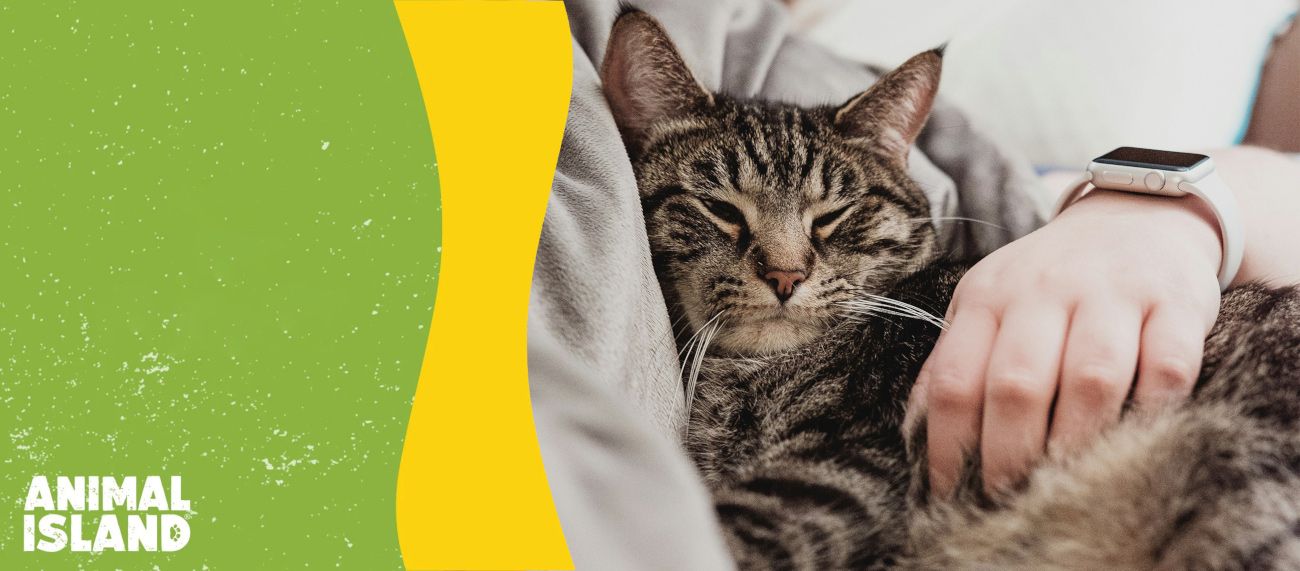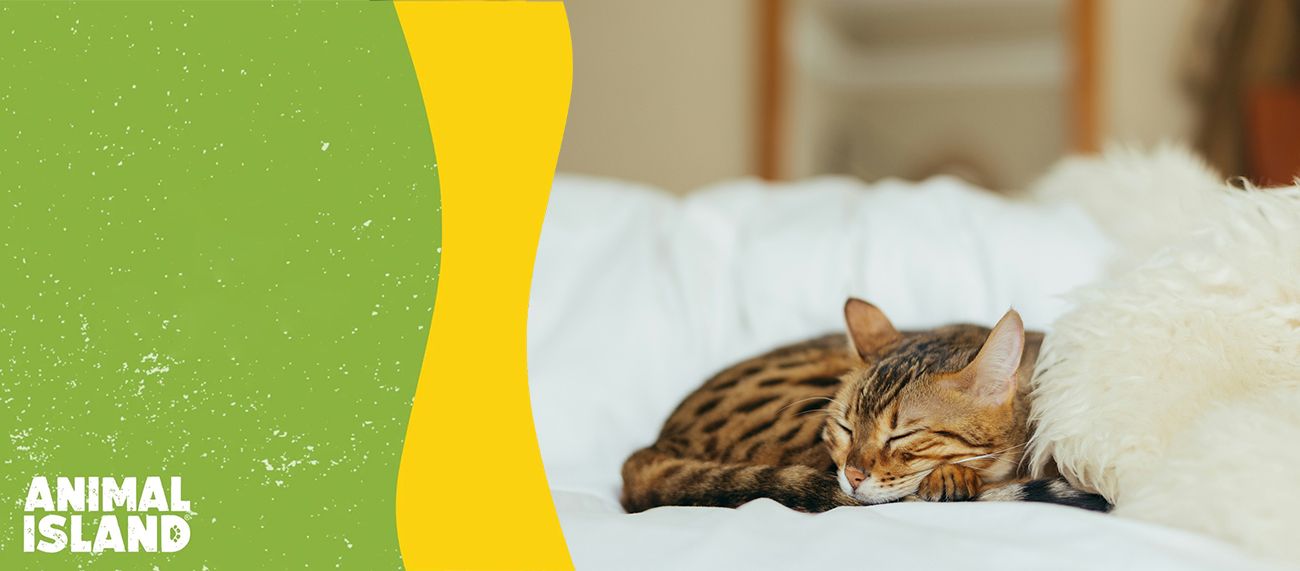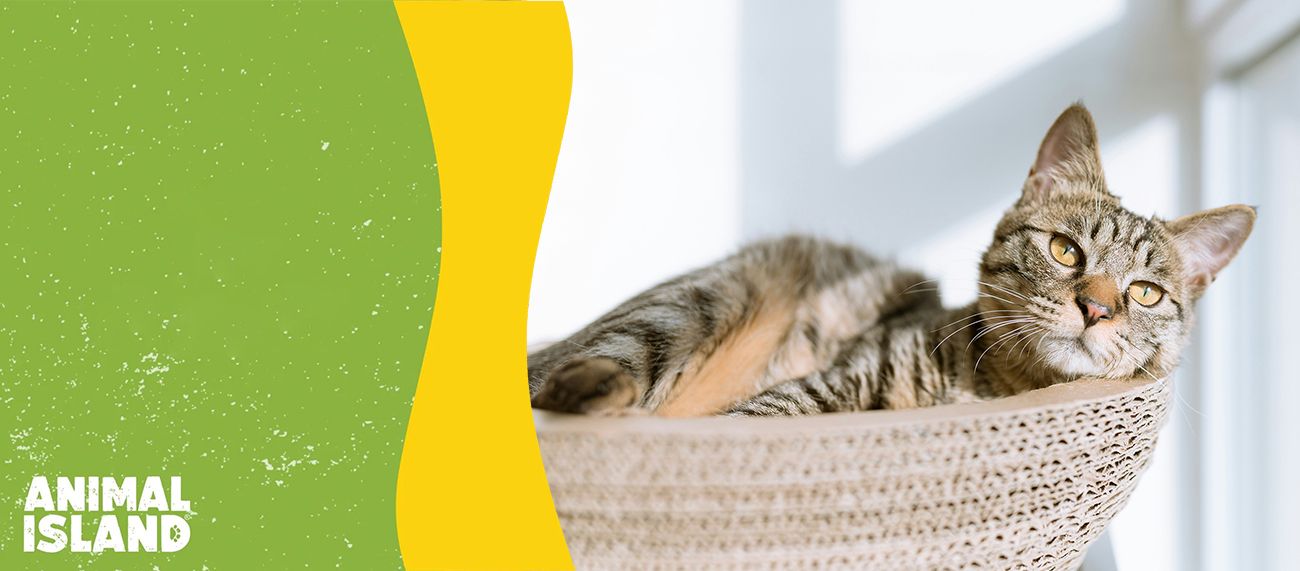Doskonale wiemy, jak bliska więź łączy Opiekuna i psa. Dlatego poruszamy kontrowersyjny temat suplementów, by rozjaśnić Wam tę trudną kwestię. W Internecie znajduje się wiele sprzecznych informacji – promujących lub negujących suplementację. A jak jest naprawdę? Przychodzimy z pomocą 😊
Podobnie jak ludzie, psy mogą czasami potrzebować dodatkowego wsparcia w postaci suplementów, aby zachować zdrowie i witalność. Suplementy mogą pomóc w poprawie kondycji skóry i sierści, wspierać zdrowie stawów, wzmacniać układ odpornościowy, a nawet wspierać zdrowie układu pokarmowego. Pamiętaj jednak, że suplementy nie zastąpią zrównoważonej diety, a jedynie ją uzupełniają a co więcej, nie w każdym przypadku będą korzystne.
W tym artykule przyjrzymy się, jakie korzyści mogą przynieść suplementy, jakie są ich rodzaje oraz na co zwrócić uwagę przy wyborze odpowiednich produktów dla naszych psów a także kiedy mogą szkodzić i dlaczego nie zawsze będą zalecane przez lekarza weterynarii. Ale przed lekturą mamy dla Was małą ciekawostkę!
Czy wiesz, że:
Psy, jako nasi najwierniejsi towarzysze, przeszły długą drogę od swoich dzikich przodków. Jednym z fascynujących aspektów ich ewolucji jest większa niż pierwotnie zdolność do trawienia skrobi, która odróżnia je od wilków. To zjawisko jest wynikiem tysiącleci wspólnego życia z ludźmi i dzielenia się z nimi resztkami pożywienia.
CZY TWÓJ PIES POTRZEBUJE SUPLEMENTÓW?
Suplementy jako wsparcie w kluczowych momentach życia
W życiu każdego psa są momenty, kiedy jego organizm potrzebuje dodatkowego wsparcia. Na przykład, w okresie wymiany okrywy włosowej warto rozważyć suplementację olejem z wiesiołka, olejem rybim czy cynkiem. Te składniki pomagają w utrzymaniu zdrowej skóry i pięknej sierści. Podobnie, w okresach zmiany pór roku, takich jak przejście z jesieni na zimę czy z zimy na wiosnę, Twój pupil może potrzebować wsparcia układu odpornościowego. Betaglukan, drożdże i olej rybny mogą pomóc w wzmocnieniu odporności naszych wiernych towarzyszy.
Psy pracujące i sportowe
Dla psów, które są aktywne fizycznie, dłuższe spacery czy uprawianie sportów mogą być wyzwaniem dla ich stawów. W takich przypadkach glukozamina, chondroityna i kolagen mogą wspierać zdrowie stawów, zwłaszcza u rosnących szczeniąt.
Psy starsze
Z wiekiem psy, podobnie jak ludzie, mogą doświadczać wielu problemów zdrowotnych. Jednym z najczęstszych problemów u starszych psów są choroby zwyrodnieniowe stawów. Suplementy na stawy, zawierające glukozaminę i chondroitynę, mogą pomóc w łagodzeniu bólu i poprawie mobilności. Dodatkowo, preparaty poprawiające ogólną witalność, takie jak przeciwutleniacze wspierające mózg czy suplementy na odporność, mogą wspierać zdrowie psich seniorów, pomagając im cieszyć się dobrą kondycją przez dłuższy czas.
Alergie i niestrawność
W przypadku zwierząt z alergiami czy niestrawnościami, warto rozważyć wprowadzenie szczepów bakterii dobroczynnych, które mogą wspierać zdrowie jelit.
Problemy behawioralne a suplementacja
Zwierzęta z zaburzeniami behawioralnymi, takimi jak lęk czy nadpobudliwość, mogą skorzystać z suplementów takich jak kozłek lekarski czy tryptofan, które mają właściwości uspokajające.
Zasada "mniej znaczy więcej"
Mimo że suplementy mogą przynieść wiele korzyści, ich permanentne podawanie zdrowym psom może być szkodliwe. Dlatego zasada "mniej znaczy więcej" powinna być zawsze brana pod uwagę. Moda na zdrowy styl życia przeniosła się także na naszych czworonożnych przyjaciół, co z jednej strony jest godne pochwały, ale z drugiej – może prowadzić do niebezpiecznych konsekwencji. Nadmiar niektórych witamin i minerałów może wręcz zaszkodzić, dlatego nie należy „na wszelki wypadek” podawać licznych preparatów, zwłaszcza bez porozumienia z lekarzem weterynarii.
Podczas gdy niedobór witamin i minerałów może prowadzić do różnych problemów zdrowotnych, ich nadmiar jest równie niebezpieczny. Przykładowo, nadmiar witaminy A może prowadzić do problemów z kośćmi i stawami, a także do uszkodzenia wątroby. Z kolei nadmiar wapnia może przyczynić się do powstawania kamieni nerkowych oraz problemów z sercem.
KONSULTACJA Z LEKARZEM WETERYNARII
Zanim zdecydujesz się na wprowadzenie suplementów do diety swojego psa, niezwykle istotne jest, aby skonsultować się z lekarzem weterynarii. Specjalista ten posiada nieocenioną wiedzę i doświadczenie, które pozwolą na dokładną ocenę, czy Twój pupil rzeczywiście potrzebuje dodatkowego wsparcia w postaci suplementów.
Ważne jest, aby pamiętać, że suplementacja nie zawsze jest konieczna. W niektórych przypadkach, dobrze zbilansowana dieta może dostarczać wszystkich niezbędnych składników odżywczych, a dodatkowe preparaty mogą być zbędne. Jednakże, w sytuacjach, gdy pies zmaga się z problemami zdrowotnymi, suplementy mogą okazać się pomocne.
Podczas wizyty u lekarza weterynarii, specjalista dokładnie przeanalizuje stan zdrowia Twojego psa, biorąc pod uwagę jego wiek, wagę oraz ewentualne schorzenia. Na tej podstawie dobierze odpowiedni preparat oraz określi właściwą dawkę. To ważne, ponieważ nieodpowiednie stosowanie suplementów może prowadzić do poważnych problemów zdrowotnych, takich jak nadmiar witamin czy minerałów w organizmie.
Kolejnym istotnym aspektem jest fakt, że niektóre suplementy mogą wchodzić w interakcje z lekami, które pies już przyjmuje. Dlatego tak ważna jest profesjonalna porada lekarza weterynarynarii. Lekarz będzie w stanie ocenić, czy dany suplement nie wpłynie negatywnie na działanie innych leków, a także czy nie spowoduje niepożądanych skutków ubocznych.
Warto również zwrócić uwagę na jakość suplementów dostępnych na rynku. Nie wszystkie produkty są równe pod względem jakości i skuteczności. Lekarz weterynarii pomoże Ci wybrać preparaty od renomowanych producentów, które są bezpieczne i skuteczne.
KWASY OMEGA3 – NA SUPERMOCE
Czym są omega-3 i gdzie je znajdziemy? Omega-3 to grupa nienasyconych kwasów tłuszczowych, które odgrywają kluczową rolę w utrzymaniu zdrowia zarówno ludzi, jak i psów. Najbardziej znane z nich to EPA (kwas eikozapentaenowy) i DHA (kwas dokozaheksaenowy).
Te cenne składniki odżywcze są szczególnie istotne dla prawidłowego funkcjonowania mózgu, zdrowia serca oraz ogólnego dobrostanu organizmu. Co więcej, omega-3 są niezbędne do produkcji hormonów regulujących krzepnięcie krwi, stan zapalny oraz elastyczność naczyń krwionośnych.
Gdzie zatem możemy znaleźć te nieocenione kwasy tłuszczowe? Przede wszystkim w tłustych rybach morskich, takich jak łosoś, sardynki czy makrela. Ryby te są naturalnym źródłem EPA i DHA, które organizm może łatwo przyswoić.
Olej rybny, pozyskiwany z tych ryb, jest kolejnym bogatym źródłem omega-3. Dla osób, które nie spożywają ryb, alternatywą mogą być olej lniany oraz algi, choć zawierają one mniejsze ilości EPA i DHA.
Warto również wspomnieć o suplementach omega-3, które występują w formie kapsułek z olejem rybim lub płynnych olejów, które można dodawać do posiłków. Czasem omega-3 są także składnikiem przysmaków funkcyjnych, co pozwala na łatwiejsze włączenie ich do codziennej diety.
KORZYŚCI ZDROWOTNE – OMEGA-3
Zdrowe stawy: Jednym z najważniejszych atutów omega-3 jest ich działanie przeciwzapalne. Regularne podawanie tych kwasów może zmniejszać stany zapalne w stawach, co jest szczególnie istotne dla psów cierpiących na artretyzm. Artretyzm u psów, znany również jako osteoartritis, choroba zwyrodnieniowa stawów (OA). Dzięki temu, psy mogą cieszyć się lepszą ruchomością i mniejszym bólem. Omega-3 często stanowią uzupełnienie terapii przy chorobach zwyrodnieniowych stawów, wspomagając działanie leków przeciwbólowych i przeciwzapalnych. Dla Opiekunów starszych psów, które zmagają się z problemami stawowymi, suplementacja omega-3 może być nieocenioną pomocą w poprawie jakości życia ich pupili.
Skóra i sierść: Kondycja skóry i sierści psa jest nie tylko kwestią estetyczną, ale również zdrowotną. Omega-3 mają zdolność do poprawy stanu skóry oraz okrywy włosowej. Pies, który regularnie otrzymuje olej z łososia, może pochwalić się lśniącą sierścią, mniejszą ilością wypadających włosów oraz brakiem łupieżu. Kwasy te pomagają utrzymać odpowiednie nawilżenie skóry, co jest szczególnie ważne dla psów zmagających się z alergiami. Omega-3 łagodzą świąd i redukują problemy dermatologiczne, co sprawia, że pies czuje się bardziej komfortowo i szczęśliwie.
Układ nerwowy i mózg: DHA, jeden z kwasów omega-3, odgrywa kluczową rolę w rozwoju mózgu u szczeniąt. Wspiera on rozwój układu nerwowego, co jest niezwykle ważne w pierwszych miesiącach życia psa. Dla starszych psów suplementacja omega-3 może przynieść korzyści w postaci poprawy funkcji poznawczych i opóźnienia spadku sprawności umysłowej. Psom seniorom z objawami zespołu poznawczej dysfunkcji (PSDC) zaleca się dodatkowe wsparcie w postaci omega-3, aby pomóc im utrzymać „jasność umysłu” i lepszą jakość życia w starszym wieku.
Serce i nerki: Badania wskazują, że kwasy omega-3 mogą mieć pozytywny wpływ na pracę serca i nerek u psów. Poprawiają profil lipidowy, działają przeciwzapalnie w mięśniu sercowym oraz mogą spowalniać postęp przewlekłej niewydolności nerek. Z tego powodu, weterynaryjni kardiolodzy i nefrolodzy często zalecają dodatkowy olej rybi w diecie psów z problemami sercowymi lub nerkowymi. Regularna suplementacja omega-3 może wspierać zdrowie tych kluczowych organów, co przekłada się na ogólną kondycję i samopoczucie psa.
SPOSOBY NA SUPLEMENTĄCJĘ OMEGA-3
Zalecana dawka oleju z łososia zależy od masy ciała psa oraz stężenia preparatu. Najprościej dodawać do posiłku psa kilka kropel lub dawkę płynnego oleju zgodnie z instrukcją na opakowaniu. Zwykle jest to około 0,5 ml na 5 kg masy ciała psa, ale warto zawsze sprawdzić zalecenia producenta, ponieważ dawki mogą się różnić w zależności od stężenia preparatu.
Alternatywą dla płynnego oleju są kapsułki, które również można łatwo wprowadzić do diety psa. Mniejsze psy często otrzymują jedną kapsułkę co dwa dni, podczas gdy większe psy mogą potrzebować codziennej dawki. Ważne jest, aby zawsze przestrzegać zaleceń producenta, aby uniknąć przedawkowania.
Podczas wprowadzania oleju z łososia do diety psa, warto pamiętać, że omega-3 to tłuszcze, a więc są kaloryczne. Przy długotrwałym podawaniu oleju z łososia należy uwzględnić jego kaloryczność w codziennej diecie psa, aby uniknąć nadwagi. Zbyt duża dawka na raz może powodować biegunkę, dlatego zawsze zaleca się zaczynanie od mniejszych ilości i stopniowe zwiększanie dawki.
PROBIOTYKI I PREBIOTYKI – WSPARCIE BRZUSZKA
Czym są priobiotyki?
Probiotyki to żywe kultury dobroczynnych bakterii, które podane w odpowiedniej ilości wywierają korzystny efekt zdrowotny. U psów najczęściej stosuje się szczepy bakterii kwasu mlekowego, takie jak Enterococcus faecium, Lactobacillus acidophilus oraz Bifidobacterium. Te mikroorganizmy są nie tylko kluczowe dla utrzymania zdrowej flory jelitowej, ale także wspierają ogólną odporność organizmu.
W jaki sposób probiotyki wpływają na zdrowie psów? Przede wszystkim pomagają w utrzymaniu równowagi mikroflory jelitowej, co jest niezbędne dla prawidłowego trawienia i wchłaniania składników odżywczych. Ponadto, mogą one wspierać układ immunologiczny, pomagając w walce z patogenami i redukując ryzyko infekcji.
Probiotyki dla psów dostępne są w różnych formach, takich jak proszki, kapsułki czy pasty do podawania doustnego. Często można je również znaleźć jako dodatek do karm komercyjnych, co jest zaznaczone na etykiecie, na przykład jako Enterococcus faecium 1x10^9 CFU/kg.
Czym są prebiotyki?
Prebiotyki to składniki pokarmowe, które nie ulegają trawieniu w jelicie cienkim, lecz stanowią pożywkę dla korzystnych bakterii jelitowych w okrężnicy. Dzięki temu wspierają rozwój zdrowej mikroflory jelitowej.
Najpopularniejsze prebiotyki w diecie psa to inulina, która często pochodzi z cykorii, fruktooligosacharydy (FOS), mannanoligosacharydy (MOS) pochodzące z drożdży, a także błonnik z warzyw i owoców. Dodatek prebiotyków w karmie pomaga wspomagać florę jelitową, co jest kluczowe dla zdrowia układu pokarmowego.
Dlaczego warto dodać prebiotyki do diety psa? Przede wszystkim dlatego, że wspomagają one wzrost i aktywność probiotyków, co w efekcie przyczynia się do lepszej pracy jelit. Poprawiają również wchłanianie składników odżywczych, co jest szczególnie ważne dla zdrowia i energii psa.
Podsumowując, zarówno probiotyki, jak i prebiotyki odgrywają kluczową rolę w utrzymaniu zdrowego brzuszka u psa. Dzięki nim możemy nie tylko poprawić stan jelit naszego pupila, ale także wspierać jego ogólną kondycję i odporność. Dlatego warto rozważyć ich wprowadzenie do codziennej diety naszego czworonoga, aby zadbać o jego zdrowie i dobre samopoczucie.
Działanie i stosowanie probiotyków i prebiotyków
Profilaktyka dla psów ze skłonnością do wrażliwego przewodu pokarmowego. Psy, które mają skłonność do biegunek przy stresie lub po antybiotykach, mogą odnieść korzyści z profilaktycznego stosowania probiotyków. Pomagają one zminimalizować ryzyko wystąpienia problemów żołądkowo-jelitowych.
Kiedy stosować probiotyki?
-
· Podczas i po antybiotykoterapii
Antybiotyki, choć skuteczne w zwalczaniu infekcji, mogą również zniszczyć pożyteczne bakterie w jelitach. Stosowanie probiotyków podczas i po antybiotykoterapii pomaga odbudować florę bakteryjną i przywrócić równowagę mikroflory.
-
· Dla szczeniąt przy zaburzeniach trawienia
Szczenięta, które często cierpią na zaburzenia trawienia, mogą skorzystać z probiotyków, które wspierają ich delikatny układ pokarmowy.
-
· W przebiegu biegunek czy zapaleń jelit
W przypadku biegunek czy zapaleń jelit, probiotyki mogą być stosowane w porozumieniu z lekarzem weterynarii, by wspierać proces leczenia i regeneracji jelit.
Jak działają prebiotyki?
Prebiotyki wspierają rozwój pożytecznych bakterii w jelitach, co prowadzi do poprawy pracy jelit. Dzięki nim regulują się wypróżnienia, a jelita funkcjonują sprawniej. Prebiotyki wspomagają także wchłanianie składników odżywczych i mogą być pomocne w utrzymaniu zdrowej wagi psa.
Podawanie probiotyków i prebiotyków
Probiotyki weterynaryjne często mają formę pasty dozowanej w cm lub proszku dodawanego do karmy. Stosuj je zgodnie z instrukcją (zwykle codziennie przez 1-2 tygodnie w trakcie problemów, profilaktycznie krótsze serie). Ważne, by probiotyk przechowywać zgodnie z zaleceniami – niektóre wymagają chłodzenia, inne są stabilizowane – by żywe kultury przetrwały.
Prebiotyki są zazwyczaj częścią diety – jeśli potrzebny jest dodatkowy, prostym prebiotykiem jest np. łyżeczka puree z dyni dodana do posiłku (bogata w włókno). Unikaj podawania probiotyków jednocześnie z gorącym pokarmem lub tuż po antybiotyku (daj 2-3h odstępu), aby bakterie miały szansę przeżyć.
SUPLEMENTY NA STAWY CZYLI…
GLUKOZAMINA, CHONDROITYNA I SPÓŁKA
Problemy ze stawami mogą dotknąć psy w każdym wieku, choć najczęściej kojarzone są z seniorami. Jednak również młode psy, zwłaszcza te dużych i bardzo dużych ras, są narażone na różnorodne schorzenia stawów.
Choroby stawów u psów mogą przybierać różne formy, od dysplazji przez zwyrodnienia aż po artretyzm. Dysplazja stawu biodrowego to jedno z najczęstszych schorzeń, które dotyka głównie psy dużych ras. Polega na nieprawidłowym ukształtowaniu stawu, co prowadzi do jego szybszego zużycia. Zwyrodnienia stawów, znane również jako osteoartroza, to przewlekła choroba, która powoduje stopniowe niszczenie chrząstki stawowej. Artretyzm, z kolei, to zapalenie stawów, które może być bardzo bolesne dla psa.
Stawy pełnią kluczową rolę w codziennym funkcjonowaniu psa. Dzięki nim zwierzę może się poruszać, biegać, skakać i bawić. Zdrowe stawy są niezbędne do utrzymania aktywności fizycznej, która jest kluczowa dla ogólnego zdrowia psa. Niestety, wiele czynników może przyczynić się do ich uszkodzenia. Wśród nich warto wymienić:
-
· Genetyka - niektóre rasy psów są bardziej podatne na choroby stawów z powodu uwarunkowań genetycznych.
-
· Wiek - z wiekiem chrząstka stawowa zużywa się, co prowadzi do problemów ze stawami.
-
· Masa ciała - nadwaga obciąża stawy, przyspieszając ich zużycie.
-
· Aktywność fizyczna - zbyt intensywne ćwiczenia mogą prowadzić do mikrourazów i przeciążeń stawów.
-
· Dieta - niedobory składników odżywczych mogą negatywnie wpływać na zdrowie stawów.
Rola suplementów „stawowych”
Suplementy diety przeznaczone dla zdrowia stawów psów stają się coraz bardziej popularne. Ich głównym celem jest ochrona i regeneracja tkanki chrzęstnej oraz wspomaganie produkcji mazi stawowej, która działa jak naturalny smar dla stawów. W skład takich suplementów często wchodzą:
Glukozaimna jest to aminocukier, który naturalnie występuje w organizmach zwierząt i ludzi. Glukozamina odgrywa kluczową rolę w budowie chrząstki, która jest niezbędna do prawidłowego funkcjonowania stawów. Chrząstka działa jak poduszka amortyzująca, chroniąc kości przed tarciem i uszkodzeniami. Glukozamina wspomaga odbudowę i regenerację chrząstki, co jest niezwykle istotne w przypadku jej uszkodzeń czy zużycia.
Dodatkowo, glukozamina stymuluje produkcję płynu stawowego, który pełni funkcję smaru dla stawów. Dzięki temu stawy mogą poruszać się płynnie i bez bólu. Właściwa ilość płynu stawowego jest niezbędna do utrzymania zdrowych i funkcjonalnych stawów, zwłaszcza u starszych psów, które mogą mieć problemy z jego naturalną produkcją.
MSM (Metylosulfonylometan)
MSM to organiczny związek siarki, który jest znany ze swoich właściwości przeciwzapalnych i przeciwbólowych. Działa na poziomie komórkowym, wspomagając regenerację tkanek i redukując obrzęki. Dzięki temu, osoby cierpiące na bóle stawów mogą odczuwać ulgę i poprawę ruchomości.
Chondroityna
Zwykle występuje w formie siarczanu chondroityny i jest kluczowa dla utrzymania elastyczności chrząstki. Chondroityna działa jako magnes na wodę, przyciągając ją do chrząstki i utrzymując jej elastyczność oraz sprężystość. Co więcej, chondroityna hamuje działanie enzymów, które mogą uszkadzać chrząstkę, co jest szczególnie ważne w przypadku stanów zapalnych i chorób zwyrodnieniowych stawów.
Połączenie glukozaminy i chondroityny jest niezwykle skuteczne. Działa synergicznie, co oznacza, że razem przynoszą lepsze efekty niż gdyby były stosowane oddzielnie. Dzięki temu duetowi można zauważyć poprawę ruchomości stawów, zmniejszenie bólu oraz stanów zapalnych. Co więcej, regularne stosowanie tych suplementów może spowolnić postęp choroby zwyrodnieniowej stawów, co jest szczególnie ważne dla starszych psów lub tych z predyspozycjami genetycznymi do takich schorzeń.
Kwas Hialuronowy
Jest to kluczowy składnik płynu stawowego, który odpowiada za jego lepkość i właściwości smarne. Dzięki niemu stawy poruszają się płynniej, co zmniejsza tarcie i ryzyko uszkodzeń chrząstki. Dodatkowo, kwas hialuronowy wspiera odżywienie chrząstki, co jest niezbędne dla jej regeneracji.
Kolagen
Kolagen to białko, które buduje chrząstkę i tkankę łączną. Suplementacja hydrolizatem kolagenu może zwiększać odporność chrząstki na mikrourazy, co jest szczególnie ważne dla osób aktywnych fizycznie. Kolagen ma także pozytywny wpływ na stan skóry, sierści i pazurów, co czyni go popularnym składnikiem suplementów dla zwierząt.
Witamina C i Mangan
Oba te składniki odgrywają kluczową rolę w syntezie kolagenu. Witamina C działa również jako przeciwutleniacz, chroniąc stawy przed szkodliwym działaniem wolnych rodników. Mangan natomiast bierze udział w procesach enzymatycznych, wspierając regenerację tkanek.
Ekstrakt z Małży Nowozelandzkiej (GLM)
Ekstrakt z małży nowozelandzkiej to naturalne źródło glukozaminy, chondroityny i kwasów omega-3. Te składniki są niezbędne dla zdrowia stawów, ponieważ wspierają odbudowę chrząstki i redukują stany zapalne. GLM jest popularnym składnikiem naturalnych preparatów na stawy, cenionym za swoją skuteczność.
Jak podawać suplementy stawowe?
Suplementy stawowe są dostępne w różnych formach: tabletki, kapsułki, syropy czy smakołyki funkcyjne. Wybór formy zależy od preferencji psa i Opiekuna. Ważne jest, aby stosować się do zaleceń dotyczących dawkowania, które zwykle opiera się na wadze psa (np. 20 mg chondroityny na kg masy ciała na dobę). Dla lepszej przyswajalności, suplementy najlepiej podawać razem z posiłkiem.
POZOSTAŁE POPULARNE SUPLEMENTY DLA PSÓW
Witaminy i minerały
Kompleksy witaminowe, znane również jako multiwitaminy, są często podawane psom, które są na domowej diecie lub przechodzą przez okres rekonwalescencji. W takich przypadkach suplementy te mogą pomóc w uzupełnieniu ewentualnych niedoborów, które mogą wystąpić w wyniku niewystarczającej ilości składników odżywczych w diecie.
Witamina B-complex jest jednym z popularniejszych suplementów, które mogą być stosowane u psów. Jest ona znana z tego, że może poprawić apetyt i metabolizm u osłabionych psów, co jest szczególnie ważne w przypadku zwierząt, które przeszły chorobę lub operację. Ponadto, witamina E jest często stosowana u psów sportowych, ponieważ może wspomóc ich mięśnie, co jest kluczowe dla utrzymania dobrej kondycji fizycznej.
Dodatkowa dawka witaminy C bywa stosowana przy problemach ze stawami, szczególnie jako antyoksydant. Ponieważ witamina C może pomóc w redukcji stanów zapalnych, jest często wybierana dla psów cierpiących na dolegliwości stawowe. Jednakże, ważne jest, aby pamiętać, że nie wszystkie witaminy są bezpieczne w dużych ilościach.
Uwaga: Nigdy nie należy podawać wysokich dawek witamin rozpuszczalnych w tłuszczach, takich jak A, D i K, bez wyraźnych wskazań. Ich nadmiar może się kumulować w organizmie psa, prowadząc do poważnych skutków ubocznych. Na przykład, nadmiar witaminy A może powodować zmiany kostne, podczas gdy nadmiar witaminy D może prowadzić do uszkodzenia nerek. Zawsze należy trzymać się dawek zaleconych przez producenta lub lekarza weterynarii.
Kwasy omega-6 i omega-9
Kwasy omega-6 i omega-9 są często obecne w diecie psów, ale czasami wymagają dodatkowej suplementacji. Omega-6, takie jak olej z wiesiołka, mogą być korzystne dla psów cierpiących na choroby skóry. Olej z wiesiołka jest bogaty w kwas gamma-linolenowy (GLA), który jest typem omega-6. Inne przykłady to olej z ogórecznika czy lniany. Ważne jest jednak, aby pamiętać, że nadmiar omega-6 bez odpowiedniej ilości omega-3 może nasilać stany zapalne, dlatego równowaga między nimi jest kluczowa.
Kwasy omega-9, takie jak kwas oleinowy z oliwy, są rzadziej suplementowane, ponieważ organizm psa potrafi je samodzielnie wytwarzać. W związku z tym nie ma na nie osobnego zapotrzebowania. Jednak w niektórych przypadkach mogą być korzystne, szczególnie w diecie psów z problemami sercowymi lub nadwagą.
Drożdże piwowarskie (źródło witamin B)
Drożdże piwowarskie to naturalny suplement dostępny w formie tabletek lub proszku, który powstaje z inaktywowanych drożdży. Są one bogate w witaminy z grupy B, biotynę oraz beta-glukany, które wzmacniają odporność. Często dodawane są do karm i smakołyków dla psów, a ich suplementacja może poprawić kondycję sierści, skóry i pazurów psa, a także wspomagać trawienie. Dodatkowo, drożdże piwowarskie bywają stosowane jako łagodny środek odstraszający pchły, ponieważ zmieniają zapach skóry dla owadów. Zalecane dawkowanie to zwykle 1 tabletka na 5-10 kg masy ciała dziennie, zgodnie z zaleceniami producenta.
Ziołowe suplementy uspokajające dla psów
Ziołowe suplementy uspokajające są popularnym wyborem wśród Opiekunów psów, którzy szukają łagodnych i naturalnych sposobów na złagodzenie lęku u swoich pupili. Składniki takie jak melisa, waleriana, czy rumianek są znane ze swoich właściwości wyciszających i relaksujących. Dodatkowo, tryptofan i feromony, często obecne w takich preparatach, mogą wspierać dobry nastrój i poczucie bezpieczeństwa u zwierząt.
Działają one poprzez wpływ na układ nerwowy psa. Melisa, znana ze swoich właściwości relaksujących, pomaga w redukcji napięcia i stresu. Waleriana, często stosowana w medycynie naturalnej, działa jako środek uspokajający, pomagając zwierzętom w stanach lękowych. Rumianek, z kolei, jest znany z działania przeciwzapalnego i uspokajającego.
Tryptofan, aminokwas obecny w niektórych suplementach, jest prekursorem serotoniny, neurotransmitera odpowiedzialnego za regulację nastroju. Feromony, które są chemicznymi sygnałami naturalnie występującymi w organizmach, mogą pomóc w stworzeniu poczucia bezpieczeństwa i komfortu.
Ziołowe suplementy uspokajające są szczególnie przydatne w sytuacjach, które mogą wywołać u psa stres lub lęk. Fajerwerki, burze, podróże samochodem, wizyty u lekarza weterynarii czy przeprowadzka to momenty, w których warto rozważyć ich zastosowanie. Ważne jest jednak, aby pamiętać, że nie są to suplementy przeznaczone do codziennego stosowania, a raczej do doraźnego użycia w sytuacjach wymagających interwencji.
Suplementy na sierść i skórę
Omega-3 i Omega-6
Kwasy tłuszczowe omega-3 i omega-6 odgrywają kluczową rolę w utrzymaniu zdrowej skóry i sierści. Omega-3, znane ze swoich właściwości przeciwzapalnych, pomagają w redukcji swędzenia i zaczerwienienia skóry. Omega-6 natomiast wspierają integralność bariery skórnej, co jest szczególnie ważne dla psów z problemami dermatologicznymi.
Biotyna
Biotyna, czyli witamina B7, jest niezbędna dla zdrowia skóry i sierści. Wspomaga produkcję keratyny, białka będącego podstawowym budulcem włosów. Regularne podawanie biotyny może znacząco poprawić strukturę i połysk sierści.
Cynk
Cynk jest minerałem, który odgrywa kluczową rolę w regeneracji skóry. Jego niedobór może prowadzić do suchości i łuszczenia się skóry, a także do osłabienia sierści. Suplementacja cynkiem pomaga w utrzymaniu zdrowej skóry i zapobiega nadmiernemu linieniu.
Witaminy A i E
Witamina A jest niezbędna dla wzrostu komórek skóry i sierści. Pomaga w regeneracji uszkodzonej skóry i wspiera zdrowy wzrost włosów. Witamina E, z kolei, działa jako silny przeciwutleniacz, chroniąc skórę przed uszkodzeniami spowodowanymi przez wolne rodniki.
Uwaga na „ludzkie” suplementy – Niektóre suplementy dla ludzi mogą być szkodliwe dla psów (np. preparaty z żeńszeniem, czosnkiem, miłorzębem – mogą zawierać dawki albo substancje niebezpieczne dla zwierząt). Zawsze korzystaj z produktów dedykowanych dla psów lub z zaleceń lekarza weterynarii.
WPROWADZENIE SUPLEMENTÓW DO DIETY
Zasada pojedynczej zmiany
Pierwszą i najważniejszą zasadą jest wprowadzanie tylko jednego suplementu na raz. Dzięki temu możemy dokładnie obserwować reakcje naszego psa na nowy preparat. Każdy organizm jest inny, dlatego reakcje mogą się różnić. Obserwując psa przez kilka tygodni po wprowadzeniu nowego suplementu, możemy ocenić, czy przynosi on oczekiwane efekty oraz czy nie powoduje skutków ubocznych. Wprowadzanie kilku nowych rzeczy jednocześnie może prowadzić do zamieszania i trudności w zidentyfikowaniu, co dokładnie działa, a co może szkodzić.
Stopniowe zwiększanie dawki
Jednym z najważniejszych aspektów wprowadzania suplementów do psiej diety jest stopniowe zwiększanie dawki. Zwłaszcza w przypadku preparatów mogących powodować rewolucje żołądkowe, takich jak olej rybi czy błonnik, warto zacząć od połowy zalecanej dawki i zwiększać ją do pełnej w ciągu 3-5 dni. Dzięki temu układ pokarmowy psa ma czas na przystosowanie się, co minimalizuje ryzyko biegunki czy wymiotów. Na przykład, w przypadku oleju z łososia, zaleca się rozpoczęcie od 1/4 łyżeczki, a docelowo dojście do 1 łyżeczki dziennie.
Podawanie z pokarmem
Kolejną istotną zasadą jest podawanie suplementów wraz z jedzeniem. Większość suplementów najlepiej podawać podczas posiłku lub tuż po nim. Pokarm działa jak osłona dla żołądka i poprawia wchłanianie wielu substancji. Proszek lub olej można łatwo wymieszać z karmą, a często dodanie odrobiny mokrej karmy lub jogurtu pomaga, by proszek się przykleił i został zjedzony. Tabletki można podawać owinięte w smakołyk, pastę lub użyć specjalnych przysmaków do podawania pigułek – dzięki temu pies nawet nie zauważy „leku”.
Obserwacja reakcji i efekty
Monitorowanie samopoczucia psa po wprowadzeniu nowego suplementu jest kluczowe. Zwracaj uwagę na wszelkie niepokojące objawy, takie jak wymioty, biegunka, swędzenie skóry czy zmiany w zachowaniu. Mogą one świadczyć o nietolerancji lub alergii na składnik suplementu. Jeśli zauważysz coś niepokojącego, natychmiast odstaw preparat i skonsultuj się z lekarzem weterynarii. Pamiętaj, że niektóre efekty suplementacji pojawiają się dopiero po czasie, na przykład poprawa stanu stawów może nastąpić dopiero po 1-2 miesiącach. Dlatego bądź cierpliwy i nie zwiększaj samowolnie dawki ponad zalecenia w nadziei na szybszy rezultat.
Jakość przede wszystkim
Wybierając suplementy dla swojego psa, kieruj się przede wszystkim jakością. Warto sięgać po produkty renomowanych firm, które posiadają certyfikaty jakości potwierdzające zgodność z wysokimi standardami produkcji. Dzięki temu masz pewność, że podajesz swojemu psu produkt bezpieczny i skuteczny.
Konsultacja z lekarzem weterynarii
Przed wprowadzeniem jakiegokolwiek suplementu do diety psa, zawsze warto skonsultować się z lekarzem weterynarii. Profesjonalista pomoże dobrać odpowiedni preparat, uwzględniając indywidualne potrzeby i stan zdrowia twojego pupila. Pamiętaj, że każdy pies jest inny, a to, co działa na jednego, niekoniecznie musi być odpowiednie dla drugiego.
PODSUMOWUJĄC:
SUPLEMENTY JAKO UZUPEŁNIENIE A NIE PODSTAWA DIETY
Równowaga i umiar
Podstawą zdrowego odżywiania, zarówno dla ludzi, jak i dla zwierząt, jest zbilansowana dieta. Dla psów oznacza to karmę dobrej jakości lub dietę domową, która została starannie zaplanowana przez specjalistę. Suplementy mogą być cennym dodatkiem, ale nigdy nie powinny zastępować pełnowartościowego pożywienia. Ich zadaniem jest „dowiązanie” brakujących ogniw – dostarczanie składników, które mogą być trudne do uzyskania z samej diety lub które wspierają określone funkcje organizmu, takie jak zdrowie stawów czy poprawa trawienia.
ANIMAL ISLAND idealny balans posiłków
Jeśli nie chcemy podawać wielu preparatów osobno, warto rozważyć wybór karmy, która już zawiera korzystne dodatki. Przykładem są karmy Animal Island, które zostały skomponowane tak, by dostarczać szeregu prozdrowotnych składników w codziennym posiłku.
Karma sucha Animal Island na wsparcie stawów
Ulubione spacerki? Mamy dla Ciebie i Twojego pupila karmę na wsparcie stawów, która zawiera zaopiekuje się stawami pupila, znajdziemy w niej chondroitynę, glukozaminę i kolagen oraz mięso z wołowiny bogate w naturalny kolagen wspiera stawy.
Karma sucha Animal Island na piękną skórę, sierść i wsparcie przewodu pokarmowego
Twój pies jest w trakcie wymiany okrywy włosowej? Karma z łososiem zadba o zdrową skórę bez łupieżu i tym samym mocną i błyszczącą sierść Twojego pupila.
Kiedy zrezygnować z suplementu?
Jednym z kluczowych momentów, kiedy warto rozważyć rezygnację z suplementów, jest sytuacja, gdy nasza dieta jest zróżnicowana i kompletna. Jeśli nie stwierdzono u nas konkretnych niedoborów ani problemów zdrowotnych, dodatkowe suplementy mogą być zbędne. Ważne jest, aby nie stosować suplementów "na wszelki wypadek".
Dla przykładu, zdrowy młody pies, który otrzymuje dobrze zbilansowaną karmę, nie potrzebuje dodatkowych witamin w tabletkach ani suplementów na stawy. Zbytnia suplementacja może przeciążyć metabolizm i prowadzić do zaburzeń równowagi składników w organizmie. Dlatego zawsze warto kierować się zasadą: obserwuj swoje potrzeby i działaj zgodnie z nimi, a nie pod wpływem marketingu.
WNIOSKI
Podstawową funkcją suplementów diety jest uzupełnienie braków w codziennym pożywieniu. Choć większość komercyjnych karm dla psów jest zbilansowana, niektóre psy mogą mieć specyficzne potrzeby, które wymagają dodatkowego wsparcia. Suplementy mogą być pomocne w różnych sytuacjach, takich jak:
Wsparcie dla starszych psów: Z wiekiem psy mogą borykać się z problemami stawowymi, spadkiem energii czy osłabieniem funkcji poznawczych. Suplementy zawierające glukozaminę, chondroitynę czy kwasy tłuszczowe omega-3 mogą wspierać zdrowie stawów i ogólny komfort życia starszych psów.
Wspomaganie leczenia: W przypadku chorób przewlekłych lub stanów zapalnych, suplementy mogą działać jako wsparcie w leczeniu. Na przykład, probiotyki mogą pomóc w problemach trawiennych, a suplementy ziołowe mogą wspierać zdrowie wątroby czy nerek.
Specjalne wymagania: Niektóre psy, ze względu na rasę, styl życia lub specyficzne problemy zdrowotne, mogą potrzebować dodatkowych składników odżywczych. Na przykład, psy sportowe mogą potrzebować więcej białka i aminokwasów, a psy z alergiami mogą skorzystać z suplementów wspierających układ odpornościowy.
Indywidualne podejście
Każdy pies jest inny, dlatego ważne jest, aby podejść do suplementacji indywidualnie. To, co działa dla jednego psa, niekoniecznie będzie odpowiednie dla innego. Kluczem jest zrozumienie potrzeb swojego pupila oraz konsultacja z lekarzem weterynarii. Profesjonalista pomoże dobrać odpowiednie suplementy oraz określić ich dawkowanie, unikając potencjalnych interakcji z innymi lekami czy suplementami.
Jakość ma znaczenie
Wybierając suplementy dla swojego psa, warto zwrócić uwagę na ich jakość. Na rynku dostępnych jest wiele produktów, jednak nie wszystkie spełniają wysokie standardy. Oto kilka wskazówek, jak wybrać odpowiednie suplementy:
Certyfikaty i badania: Wybieraj produkty, które przeszły niezależne testy i posiadają certyfikaty jakości.
Składniki: Sprawdzaj skład suplementów. Unikaj produktów z niepotrzebnymi dodatkami czy sztucznymi barwnikami.
Opinie i rekomendacje: Czytaj opinie innych Opiekunów psów oraz zasięgaj porad lekarza weterynarii.
Suplementy w diecie psa mogą przynieść wiele korzyści, ale ich stosowanie powinno być przemyślane i dostosowane do indywidualnych potrzeb zwierzęcia. Kluczem do sukcesu jest współpraca z lekarzem weterynarii oraz wybór wysokiej jakości produktów. Dzięki temu Twój pies będzie mógł cieszyć się zdrowiem i energią przez długie lata. Pamiętaj, że świadoma opieka to najlepsza inwestycja w dobrostan Twojego czworonoga.
"Ktoś, kto nigdy nie miał psa, przeoczył cudowną część życia."
- Bob Barker









